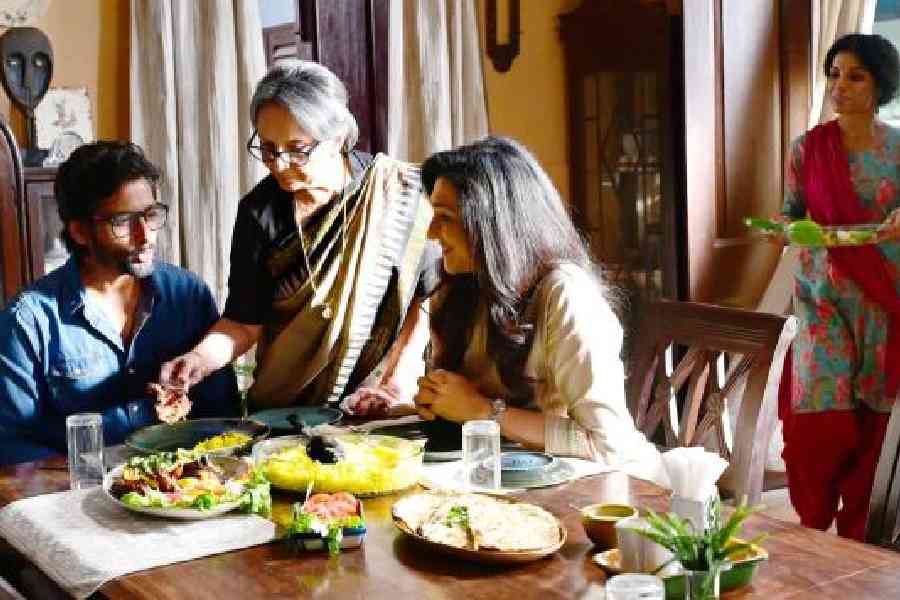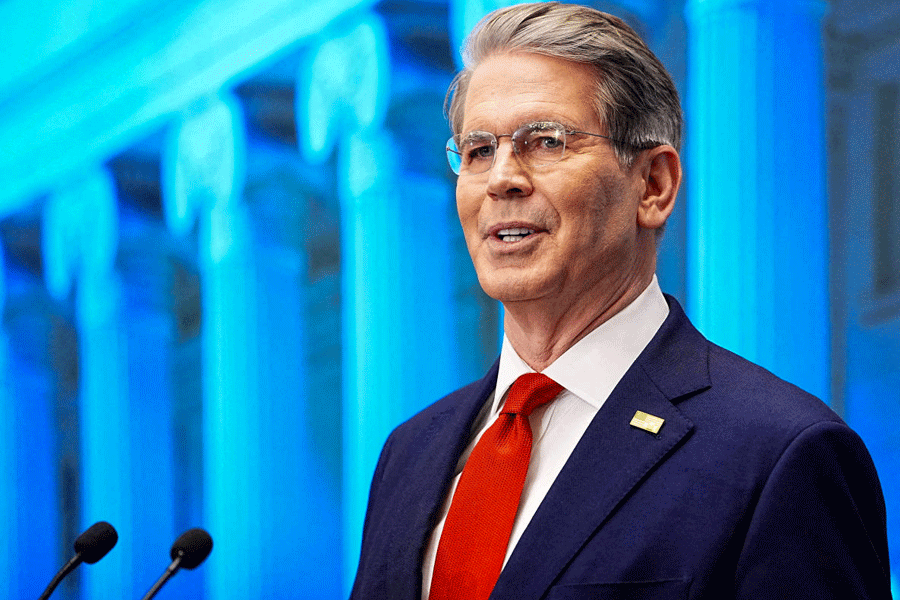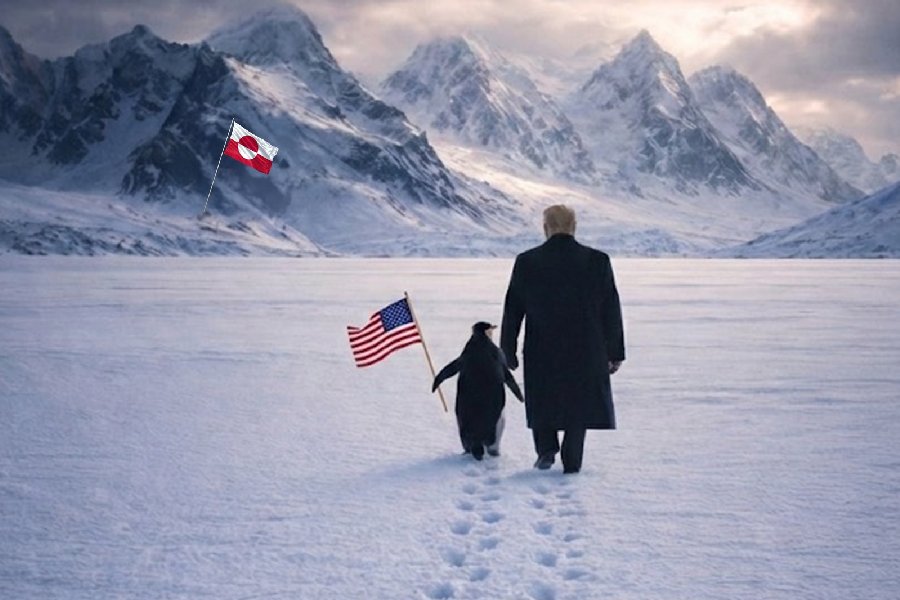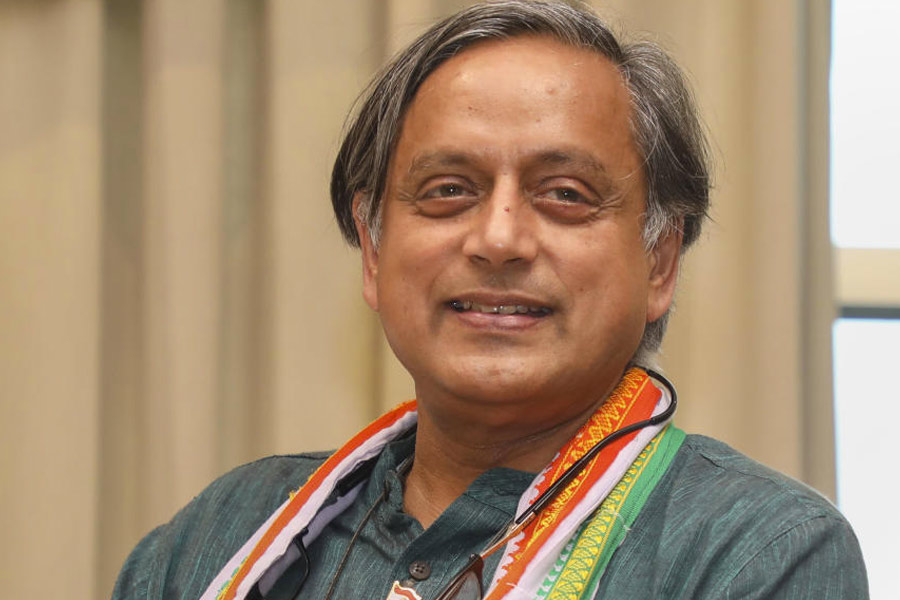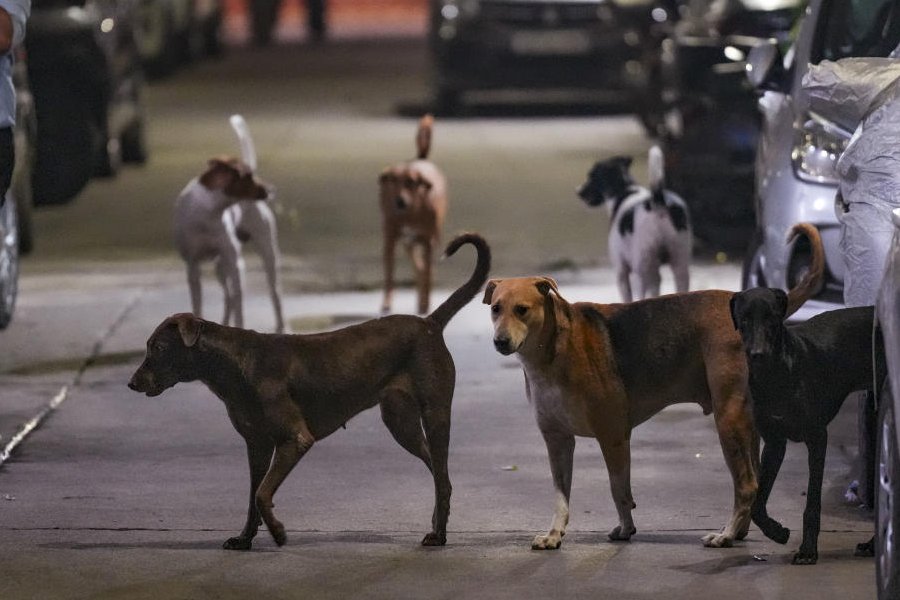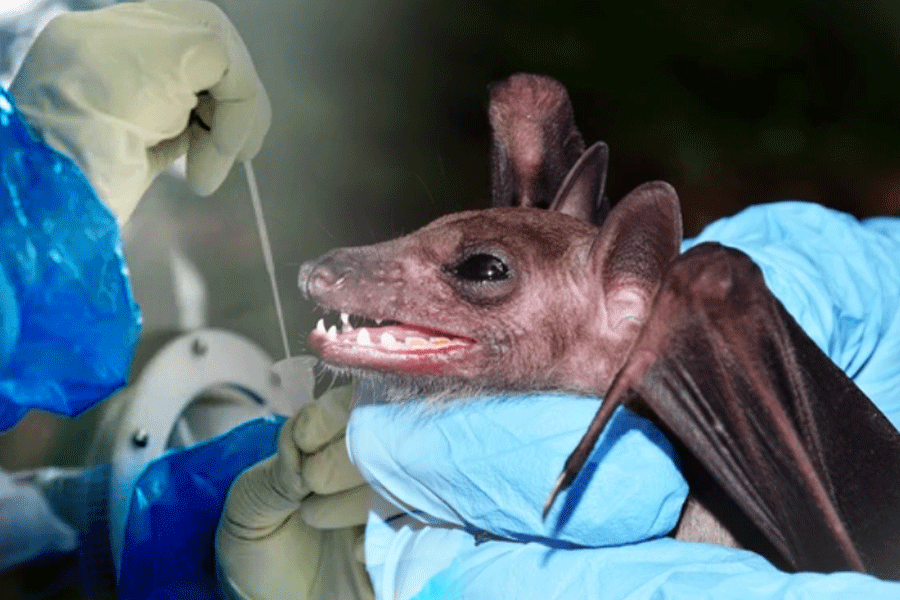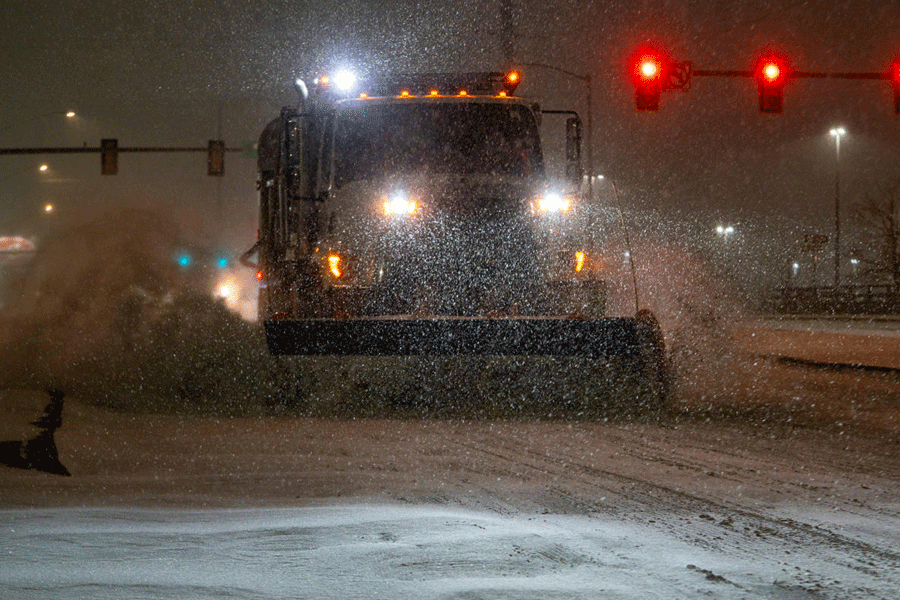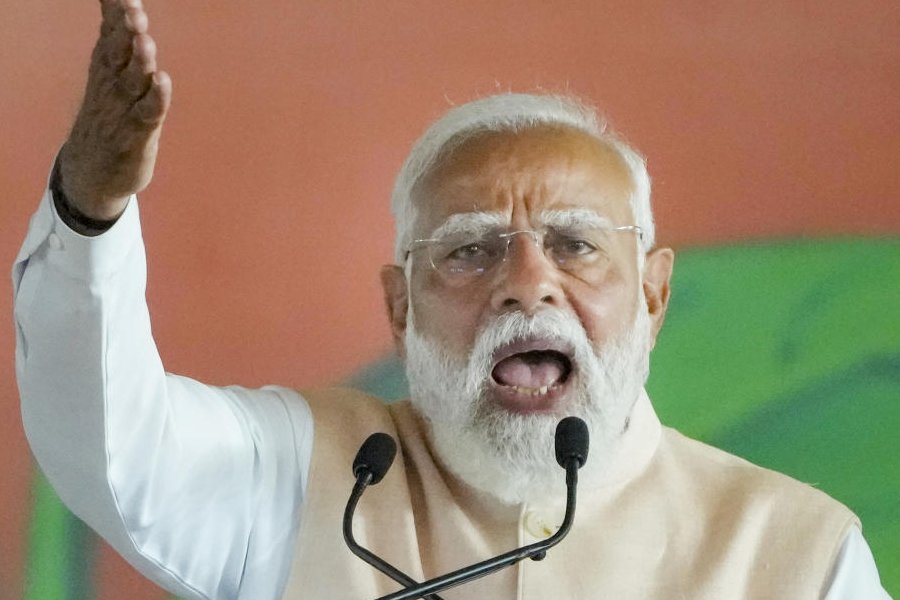Julie Banerjee Mehta and her husband Harish Mehta left their jobs as university professors and sold their home in Toronto 10 years ago, to return to their family home in Calcutta to look after her mother who was diagnosed with the first stages of dementia. On watching the power-packed film Puratawn, which hauntingly explores dementia (starring the evergreen Sharmila Tagore, Rituparna Sengupta and Indraneil Sengupta), Julie remembered the crushing blow of the first time her mother, at 86, had forgotten her father. Julie was there. This excerpt is from a meticulously kept unpublished diary...
In the air slathered with the comforting taste of ripening mangoes, and the wafting of Tagore’s most niggling song Ami chini go chini tomare, o go bideshini from the old gramophone in my parents’ bedroom, a volcano is about to erupt. I was in Calcutta for my summer break from teaching at the University of Toronto and my world changed in every way since that day.
“Who is this man?” she whispers, gesturing at my father with her eyes. Scraping her chair closer to mine, cocking her head slightly, my mother glares at me. Knife poised in her right hand, the cake stand clasped between the thumb and forefinger of her left hand, she freezes. Confused, I glance at the living room door to see who might have entered uninvited. And then my gaze rests upon her face, half-expecting the corners of her mouth to break into her signature hashi. Only her eyes, the colour of untidy irises in our front yard at Cardinal Crescent, Oakridge, long past their bloom, have me in their crossfire. “Who is he?” she persists, her voice suddenly riddled with irritation. My mother puts the knife down and it lands somewhere in the middle of my chest. I know from the way my breath catches in my throat that something awful is happening. But I don’t know what.
The wax anchoring the eight candles is melting into the supple chocolate-slathered layer of my mother’s 86th birthday cake. It is also my parents’ 68th wedding anniversary. The numbers eight and six dot the soft, portly confection, obese with all too generous wallops of chocolate mousse, sauce and lava, and which looks in danger of imminent prolapse. Especially ordered from Calcutta’s famous Kookie Jar. The celebratory high tea was a biannual tradition observed on each of my parents’ birthdays. That day, it was a tight weave of family and staff, motley supporters eager to plough into the offerings. The guests scattered around the table are zealous members and extended limbs of the Banerjee clan. I can still see the frames as if I was reliving a cinematic experience.
The day had begun early. As if on cue, the creak of the iron gates heralded the arrival of many of Ma’s and Baba’s protégés over the decades from the National Medical College, where Baba had been principal and dean. Arriving with a bouquet of heady rajanigandha blooms that spread their signature scent through the living room and library, they serenaded Ma with Tagore’s song about the foreigner who is familiar despite being a stranger from another land across the oceans. I had heard my mother sing that song so many times as a child that it had become a part of me. But ever since I had left home and gone to pursue a career in academics to Canada, the song roused a storm in my blood. I started to sob uncontrollably when the first bars of Ami chini go chini tomare spread its wings over the persuasive melody of the harmonium. Now the irony seems surreal. My father has become a stranger at his own door and we have no idea if he will become an unwelcome guest. “Why don’t you answer me: Who is this man?” My mother now edged closer to me. “Ma, this is Baba. Tarun.” “Kee heejee beejee bolchho? Baba? Whose Baba?”
I loved the way Ma said that word. The English translation was ‘rubbish’. But it didn’t even come close to the meaning in Bengali. As a child, Ma had chided me and my brother Ranjan with that word, and for us, the word had been enlarged in its scope, and for years, they had used it as a code for ineptitude or meaninglessness. So heejee beejee lok would mean inept workers or heejee beejee katha would mean meaningless talk. Now, the word would never have that same resonance of happy banter. Ma herself was now sinking into heejee beejee talk and was beginning to make little sense as she denied Baba’s presence in the flesh.
I catch my father’s eye and send him all the love I can gather in a glance and blow it across the table. He catches my love and blinks. He has just come home after an overnighter in ICU, and looks pale and tired, and seems unable to understand the humour undergirding my mother’s penetrating question about his identity. He is just as flummoxed as any of us in trying to make sense of what it is that my mother might be trying to project in her apparent inability to locate her husband and work partner of 68 years.
“What?” my mother yells, with a pugnacious edge to her voice. “Have you gone completely mad? Would I not know if it is Baba? He is in the hospital. This is an impostor. Get him out. Get out!” Her eyes have a look in them that is unfamiliar. That, to me, is a cause for alarm. None of us understands what is being unleashed, and the room full of my parents’ closest supporters and family seems unable to move.
In the seconds that we are unable to figure out what is unfolding, my mother grabs my father’s walking stick and raises it over his head in a trice. My father spurts out, “No!”, surprised at this new avatar of a calm and conservative wife, and ducks from the blow like a seasoned batsman would from a misdirected throw of a bowler. From the far end of the dining table, Chakradhar vaults to my mother’s side and deflects the blow to his outreached palm, saving my father’s pate and possible fate, with the alacrity of an ace outfielder. The thwack of the cane on the cook’s metatarsals could be the sound of willow hitting leather — the only sound audible in a roomful of stunned guests.
“Get out! Beriye jao”. Ma is beside herself with anger. As I put my hands around her little frame, my mother’s heart throbs. “Get out! Get out!” she shrieks, looking at her husband with anger she usually saved for a bad algebra score in my exams at high school or a lazy member of her nursing staff at the hospital.
Who is going to render my father homeless from his home, I wonder. Suddenly I see him in his eternal gesture of welcome to me whenever I came home from wherever I was living, for a lifetime. Right there, at the doorway, standing lean and upright at six feet tall at the top of the stairs, his right foot already on the landing and his left about to cross the threshold, one arm outstretched to give me a hug as I gently sink into his chest, gentler and gentler, over the years. Lately, the other hand had been shaking, as he holds a walking stick with it, after his first heart attack some years ago. My father Tarun, my best buddy, my life. He was the same large-hearted surgeon who had built a charitable hospital for women to be ligated in Narendrapur with his toil and nightlong vigils in the maternity ward delivering babies; my father who was a fellow of the Royal College of Surgeons, the president of several social club in Calcutta; my father who had walked the walk of women’s empowerment beginning in the home when I had witnessed how he religiously handed over all his earnings to his wife without knowing how much he had earned; my father who had never been to a bank in 30 years, leaving all financial matters in my mother’s tight, strong fists; my father, who had built my mother a home that was the awe of peers and friends, now being told to get out of his own home.
The questions stymie the air with expanding outrage. What happened to Ma? Is it amnesia? How did this lapse of memory occur? Did she have a fall? Has she developed a clot on account of a fall that the staff has not informed me about? Or is it a TIA (transient ischemic attack) that she is suffering? I sneak a look at the back of my father’s white tufted nape as he disappears from view, with Dr Rahul and Chhotokaka on either side, and wonder what has happened to Ma. The family who are here to celebrate Ma’s life, and Baba’s, and their partnership inside the home and in the world, now find themselves charge-sheeted in a bizarre drama that very quickly changes from the sublime to the tragic, and is now veering on the ridiculous.
Ma’s quiet demeanour changes to galloping anger: “You bajjat, you have killed Tarun. What have you done with him?” The accusations are directed at me and come fast and fantastical. A giggle rises up at the sheer vulgarity of the abusive terms which I have never heard from my mother’s mouth before. And then the laughter quickly dies in my gullet, as the grossness of those terms that question my ancestry and legitimacy shocks me into silence.
I walk softly to the kitchen, trying to figure out what our family physician Dr Rahul will suggest and we nearly bump into each other. “What do you think it is, Rahul?” I beg for an answer. After what seems like ages, lowering his voice, he breaks my world with a whisper: “I suspect Animadi has the beginnings of dementia. Life will undergo a change for everyone. You have to protect your father in those minutes of danger when she has no memory left. You need a trained nurse now. When you return to Canada, I am frightened to think of what will happen to your parents”.
Somewhere deep down inside me, I knew I had to come home to them after 38 years overseas. Because dementia or not,
Dr Anima needed me. She was still my mother.
Julie Banerjee Mehta is the author of Dance of Life and co-author of the bestselling biography Strongman: The Extraordinary Life of Hun Sen. She has a PhD in English and South Asian Studies from the University of Toronto, where she taught World Literature and Postcolonial Literature. She currently lives in Calcutta and teaches Masters English at Loreto College, is a literary columnist for t2 and conceptualises and curates the Rising Asia Circle

